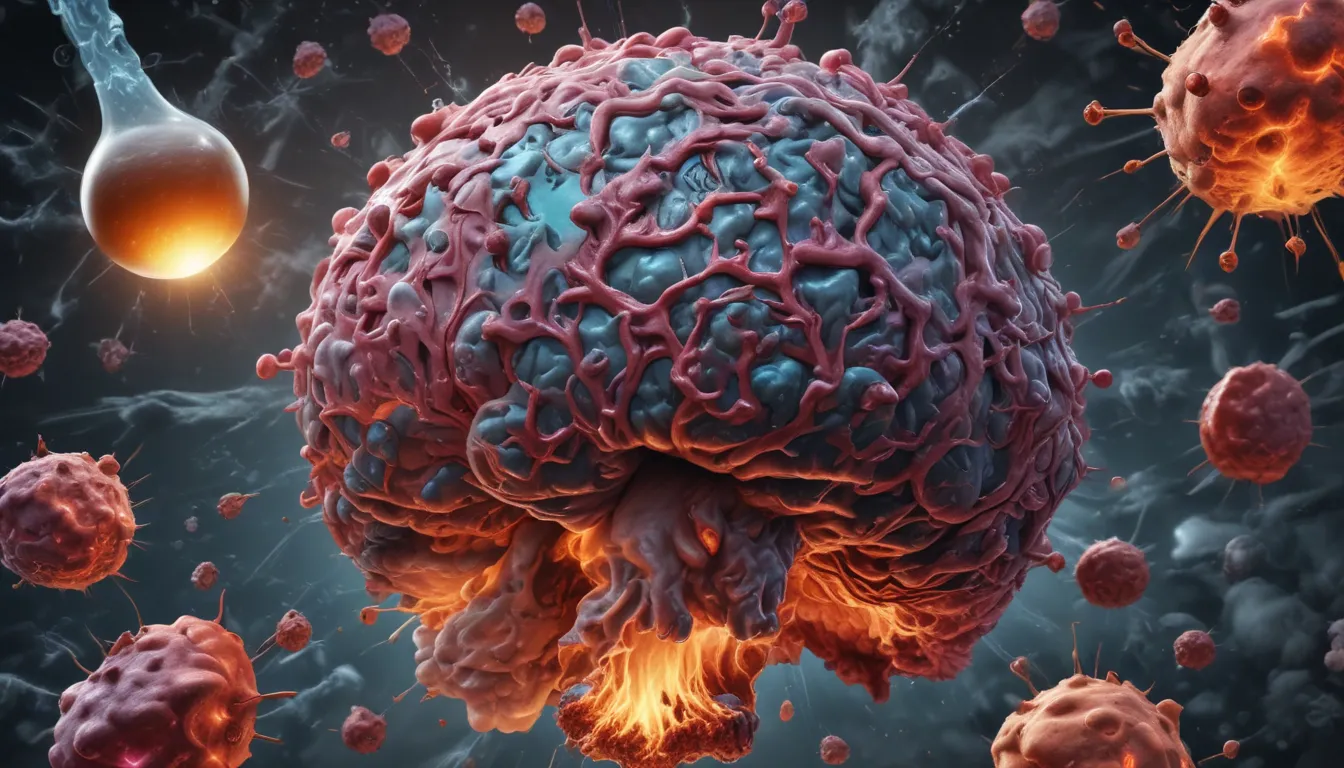A Note About Images: The images used in our articles are for illustration purposes only and may not exactly match the content. They are meant to engage readers, but the text should be relied upon for accurate information.
Carcinogenesis, the intricate process behind cancer development, has been a subject of fascination for scientists and researchers for years. Understanding the complexities of how normal cells transform into cancer cells is not only essential for early detection and treatment but also crucial for preventing the onset of this devastating disease. In this article, we will embark on a captivating journey into the enigmatic realm of carcinogenesis to explore 17 intriguing facts that shed light on this perplexing process.
Unraveling the Complexity of Carcinogenesis
Carcinogenesis is a complex multistep process that involves multiple genetic and epigenetic alterations disrupting the balance of cell growth and division. Mutations in specific genes play a crucial role in driving uncontrolled cell growth and tumor formation. Environmental factors, such as exposure to carcinogenic substances like tobacco smoke, can increase the risk of developing cancer.
The immune system plays a dual role in carcinogenesis, with a healthy immune system capable of recognizing and eliminating cancer cells while chronic inflammation can promote tumor development. Carcinogenesis is not limited to a specific organ, highlighting the diversity and complexity of cancer types.
Factors Influencing Carcinogenesis
Genetic predisposition and lifestyle choices, such as diet, physical activity, and sunlight exposure, can impact the risk of developing cancer. Epigenetic modifications can alter gene expression and contribute to carcinogenesis. Angiogenesis, the formation of new blood vessels, is crucial for tumor growth and spread.
Tumor heterogeneity, the presence of different cell types within tumors, poses challenges in cancer treatment. Cancer cells can evade immune surveillance and develop strategies to resist detection and destruction. Viral infections, such as HPV and HBV, can increase the risk of certain types of cancer.
Dynamic Nature of Carcinogenesis
Carcinogenesis is a dynamic and evolving process, with cancer cells acquiring additional mutations over time leading to disease progression and metastasis. Hormonal factors like estrogen and testosterone can impact hormone-related cancers. The microenvironment, including surrounding cells, blood vessels, and the extracellular matrix, plays a critical role in shaping cancer progression.
Alterations in cell signaling pathways, such as the PI3K-AKT pathway, can contribute to uncontrolled cell growth and survival. Carcinogenesis is a major focus of research and clinical studies, with scientists striving to unravel the complex mechanisms to develop more effective prevention and treatment strategies.
Conclusion
In conclusion, carcinogenesis remains a complex and enigmatic process with various factors and mechanisms driving cancer development. Understanding these complexities is vital for advancing cancer prevention and treatment. Through studying genetic and environmental factors, scientists work towards preventing and treating cancer more effectively.
Advancements in technology and targeted therapies offer hope for improved diagnostics and personalized treatments, emphasizing the importance of early detection, leading a healthy lifestyle, and raising awareness about risk factors. Together, we can work towards reducing the burden of cancer and improving the quality of life for those affected by this disease.
FAQs
- What is carcinogenesis?
-
Carcinogenesis refers to the process by which normal cells transform into cancer cells.
-
What are the risk factors for carcinogenesis?
-
Risk factors include genetic predispositions, exposure to carcinogens, lifestyle choices, smoking, poor diet, obesity, and infections.
-
Can carcinogenesis be prevented?
-
Lifestyle choices and avoiding carcinogens can help reduce the risk. Quitting smoking, maintaining a healthy weight, safe sun exposure, and regular screenings are preventive measures.
-
How does carcinogenesis lead to tumor formation?
-
The accumulation of genetic mutations disrupts normal cell growth and division, leading to tumor formation.
-
Are all cancers a result of carcinogenesis?
-
Yes, all cancers result from aberrant cell growth or development, a key characteristic of carcinogenesis.
-
What role does genetics play in carcinogenesis?
-
Genetic factors can influence susceptibility to carcinogenesis, with certain inherited mutations increasing cancer risk.
-
Can carcinogenesis be reversed?
-
While challenging to reverse, early detection, proper treatment, and lifestyle changes can help manage cancer and improve outcomes.
-
What are the current advancements in understanding carcinogenesis?
- Genomic technologies and molecular biology advancements have enhanced our understanding of carcinogenesis, leading to targeted cancer therapies.
Carcinogenesis is a captivating subject with much more to explore in the realm of science. Delve into molecular biology, learn about oncology drugs, and discover inspiring facts about efforts like the Ride To Conquer Cancer to make a difference in the fight against this disease. Keep exploring, keep learning, and keep making a difference in the field of science and health.
Was this page helpful?
Our dedication to delivering trustworthy and engaging content ensures that each fact is contributed by real users, providing a wealth of diverse insights. Our editors meticulously review all submissions to uphold the highest standards of accuracy, guaranteeing reliable and fascinating information. Trust in our commitment to quality and authenticity as you continue to explore and learn with us.






